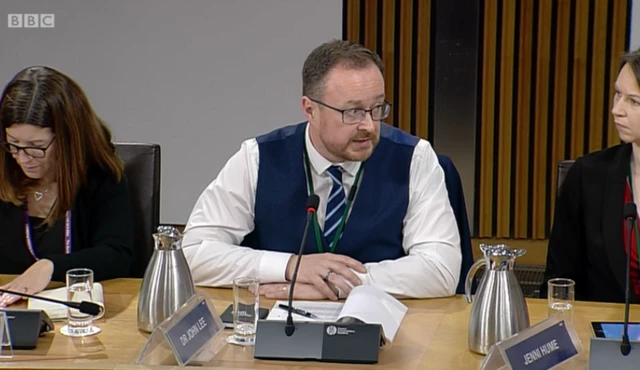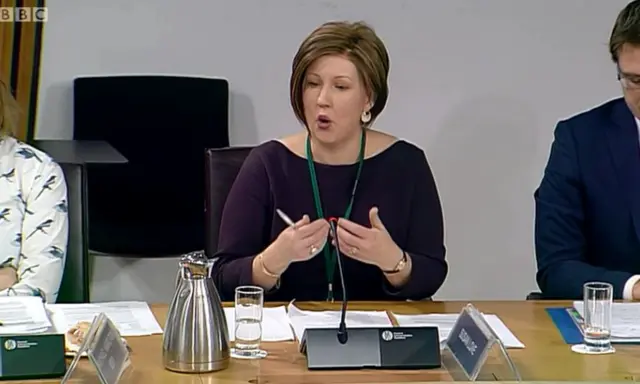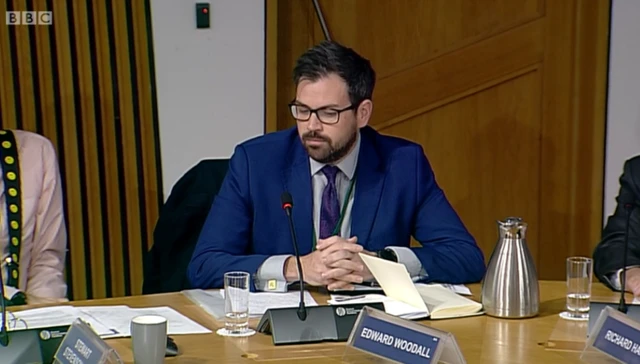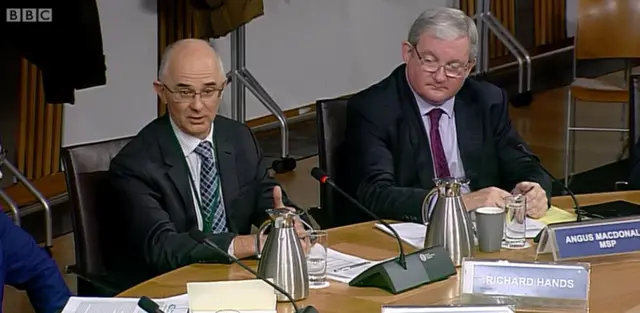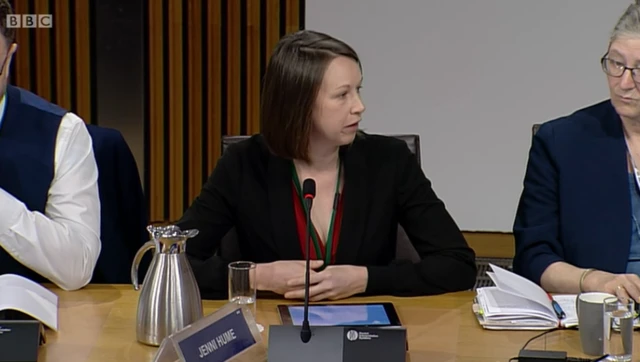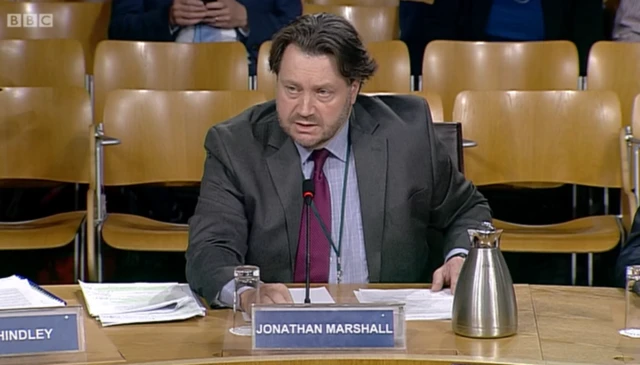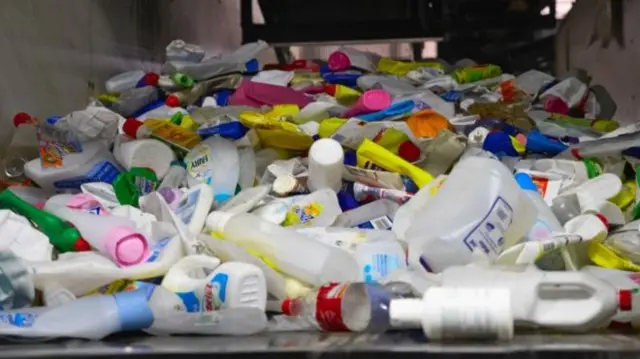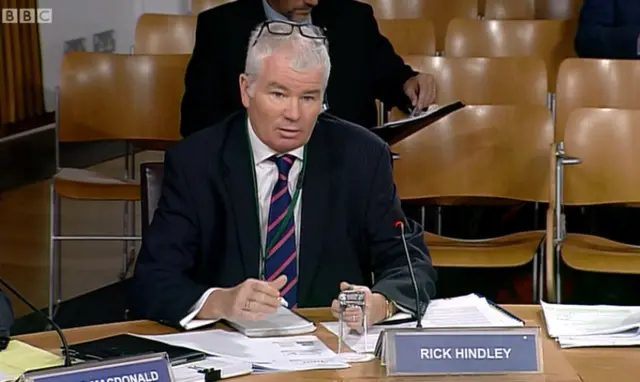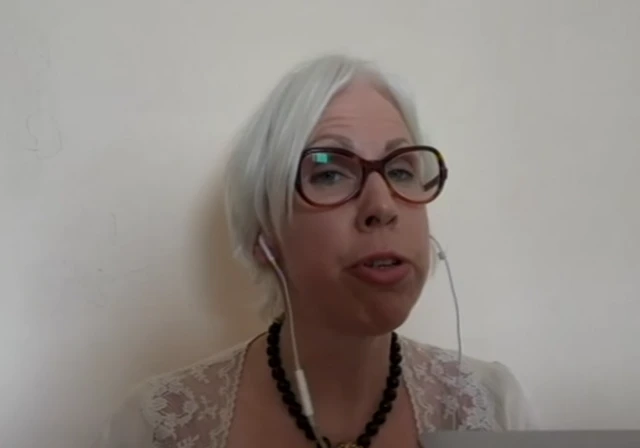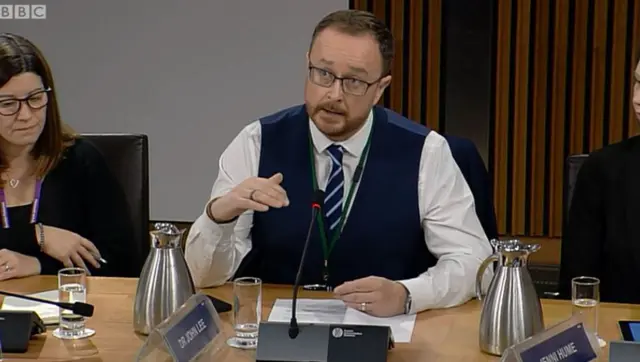Alupro warns of potentially 8.3m more plastic bottles being produced in Scotlandpublished at 10:19 GMT 12 November 2019
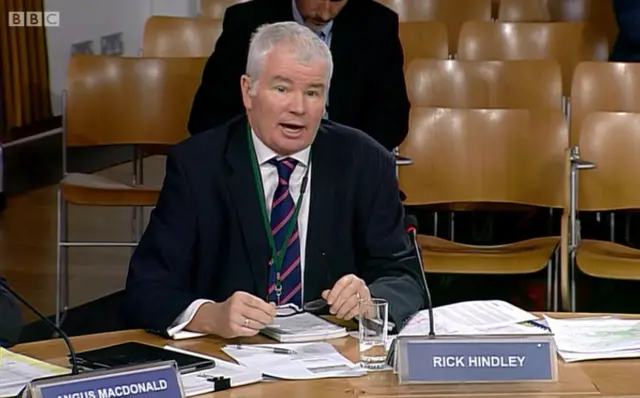 Image source, bbc
Image source, bbcRick Hindley from Alupro
Tory MSP Finlay Carson pivots to the level of deposit, arguing the public will be able to deal with a variable fee.
He cites Finland's four varying levels of deposit, which they are coping with.
Rick Hindley from Alupro replies he is acutely aware of and very concerned about this issue.
Two thirds of people would upsize from multi-pack cans into two liter plastic bottles, which would potentially lead to 8.2m additional plastic bottles being sold in Scotland he explains.
He insists there is absolutely no reason a Scottish consumer would be different from a Scandinavian one and could deal with variable rates.
Rick Handley says Alupro would support a higher deposit for large bottles, with 20p being the baseline for the smallest containers.
